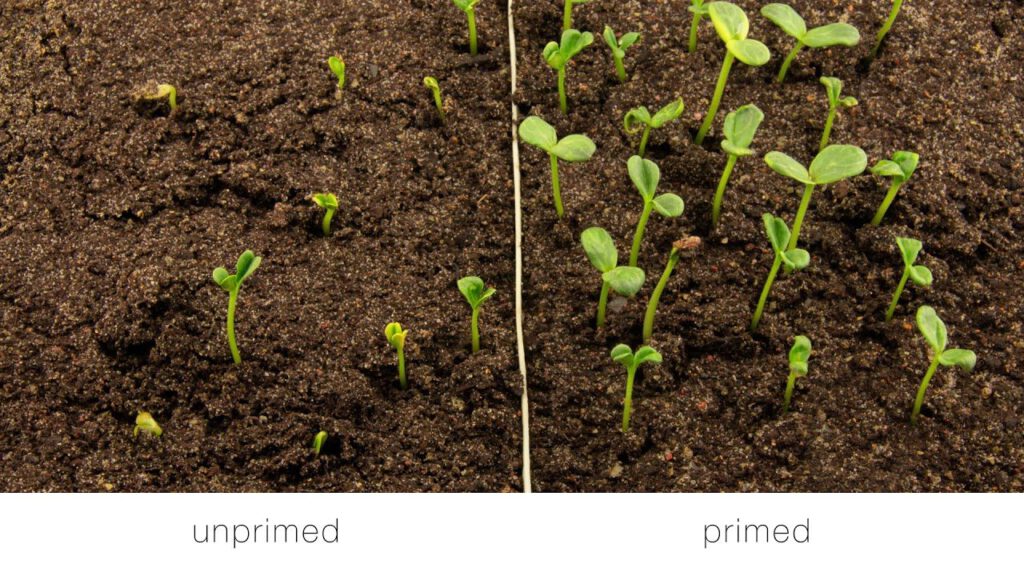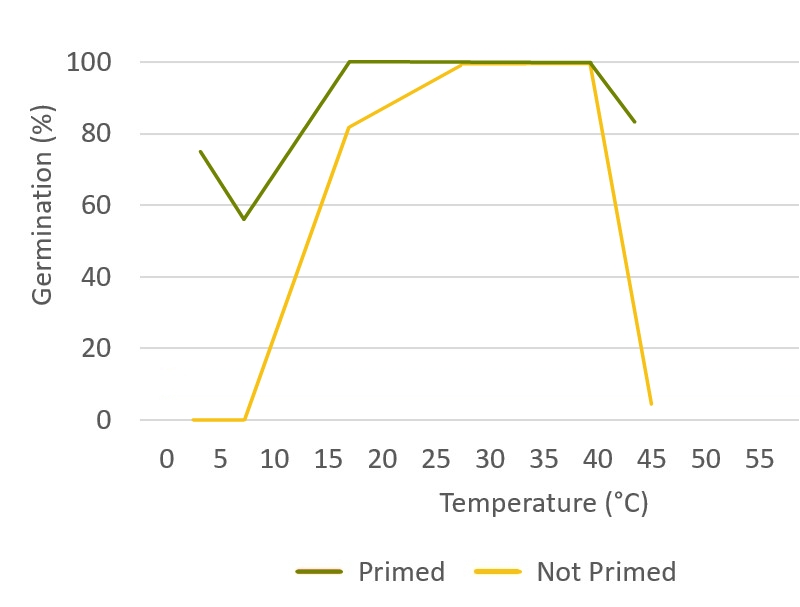SEED HANDLING RECOMMENDATIONS
Home >> Seed Handling and Storage Recommendations
TRANSPORT OF SEED
When seed is shipped, it is advised to have similar conditions as above mentioned temperatures in storage. Avoid exposure to high temperatures or fluctuation in temperature during transport. Recommendation to transport seeds in temperature conditioned container. It should not be stored near a heat source or in direct sun.
STORAGE TEMPERATURE & HUMIDITY
High temperatures and humidity can affect seed by reducing its vigor and ability to germinate. Therefore, seed should be stored in a cool, dry area, out of the sun and in unopened packages. Bayer packs its seed at industry recommended moisture percentages and packages must be kept unopened to prevent humidity from damaging the seeds. Cans, foils and pouches are air and water tight.
HANDLE SEED CAREFULLY
Handle the seed carefully to avoid damaging it. Seed can be damaged by rough handling. Seeds have a hard, but fragile coating protecting the living organism within. Bean, Pea, Sweet corn and pelleted seeds are especially susceptible to damage from rough handling (skin cracks or broken pellets). Bags of these seeds should not be thrown or dropped because the seed coats and embryos can crack, resulting in a seed that won’t develop properly.
CARRY OVER INVENTORY
Bayer recommends all seed should be used in two years or less from purchase. A germination test update by an ISTA accredited lab is advised on carry over inventory, with a minimum of once per year, before the sowing period.
Venlo Recommends
- Storing seed in the original package in an air-conditioned room with storage temperature of 15°C (59°F)
- Avoid temp above 20°C (68°F)
- Avoid temp below 1°C (41°F)
- Storing seeds packed in paper bags at Relative Humidity 40-60%
- Certain seeds are more sensitive and are labelled specifically with:
- Store at 8°C
- Store at 8°C and use within 12 months
- Consider reduced shelf life once package is opened
PRIMED SEEDS
Seed priming is a pre-sowing treatment which leads to a physiological state that enables seed to germinate more efficiently. The majority of seed treatments are based on seed imbibition allowing the seeds to go through the first reversible stage of germination but do not allow radical protrusion through the seed coat. Seeds keeping their desiccation tolerance are then dehydrated and can be stored until final sowing. During subsequent germination, primed seeds exhibit a faster and more synchronized germination and young seedlings are often more vigorous and resistant to abiotic stresses than seedlings obtained from unprimed seeds.

Priming often involves soaking seed in predetermined amounts of water or limitation of the imbibition time. The imbibition rate could be somehow controlled by osmotic agents such as PEG and referred as osmopriming. Halopriming implies the use of specific salts while “hormopriming” relies on the use of plant growth regulators. Some physical treatments (UV, cold or heat,..) also provide germination improvement thus suggesting that priming effects are not necessarily related to seed imbibition. A better understanding of the metabolic events taking place during the priming treatment and the subsequent germination should help to use this simple and cheap technology in a more efficient way.

Priming is a method to enhance the speed and uniformity of germination. Water is added to seeds in a controlled manner; they are then allowed to develop for a certain period, until seeds are dried back again. During priming, the germination process is started, without allowing radicle emergence to take place.
Benefits of primed seeds:
- Better and faster emergence
- More uniform emergence and (trans)plants
- Increased tolerance to stress conditions
- Tolerance to wider range of temperatures
In general, the shelf life of primed seeds is as good as unprimed seeds if stored in the right storage conditions.
